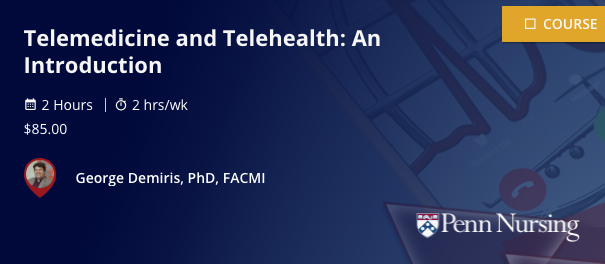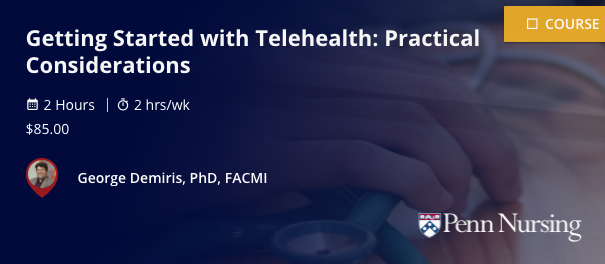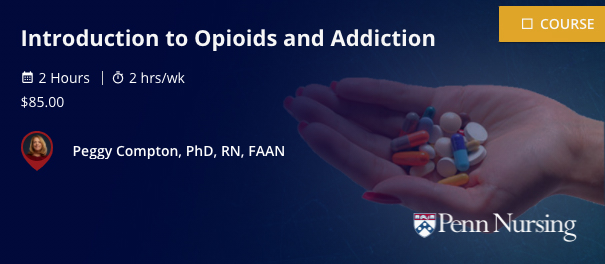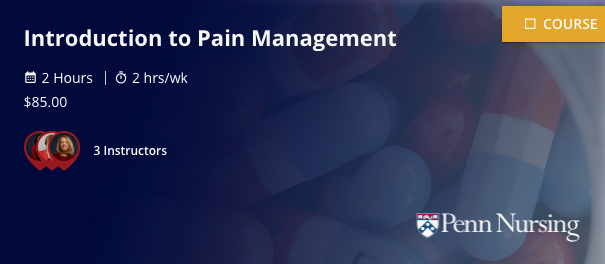Specialized Learning

Our asynchronous online certificate courses provide specialized learning in critical and emerging areas for individuals, and are also available at a group rate for health systems and other health care institutions.
Completion of each of the courses listed below will earn the learner two (2) CEUs per course, which will be provided by Penn Medicine. Penn Medicine is an approved provider of continuing nursing education by the Pennsylvania State Nurses Association, an accredited approver by the American Nurses Credentialing Center’s Commission on Accreditation. Approval #124-3-H-15.
One credit hour = one contact hour.

|
Telemedicine and Telehealth: An IntroductionThis course will cover an overview of the field of telemedicine and telehealth, the history of the field, types of telehealth applications, and we will discuss practical considerations such as issues pertaining to licensure, reimbursement, and workflow. The spectrum of activity ranging from research into implications of system design for applications that bridge geographic distance to the development of practical applications is considered, in both historical context and in case studies. The current status and future trends of this emerging domain are reviewed. Learn more>>
|

|
Getting Started with Telehealth: Practical ConsiderationsThis course is designed to introduce practical considerations and lessons learned for the introduction of telehealth in clinical practice. Participants will discuss technical considerations, effective communication, and evaluation tools for introducing telehealth into clinical settings. Learn more>>
|

|
Introduction to Opioids and AddictionThis course will briefly review the pharmacology of opioids, including the opioids that are used to treat opioid addiction, and learn a little more about the disease of addiction in general and to opioids specifically. Finally, the challenging situation of treating pain in patients with opioid addiction will be addressed, as we review the principles of good pain management for patients with a history of abusing this class of medication. Learn more>>
|

|
Introduction to Pain ManagementIn this course, the latest evidence about the mechanisms underlying acute and chronic pain, and newer opioid-sparing multi-modal and non-pharmacologic approaches to pain management will be reviewed. Disparities in the receipt of effective pain treatment, opioid or otherwise, will be considered, and the strengths and limitations of the recent CDC guideline on the use of opioids to treat chronic pain will be presented. Learn more>>
|

|
Advancing High Quality Care: The Transitional Care ModelManaging transitions in care, especially among older adult patients, enhances the patient experience, improves health and quality-of-life outcomes, and reduces use of costly services. Transitional care includes a range of time-limited services designed to ensure health care continuity and prevent poor outcomes among at-risk populations as they move from one level of care to another, among multiple health care team members, and across settings, such as hospitals to homes. In this course, you will learn about the research, policy, and practice implications of the Transitional Care Model—an evidence-based program of care designed to meet the needs of at-risk older adults in transition. |